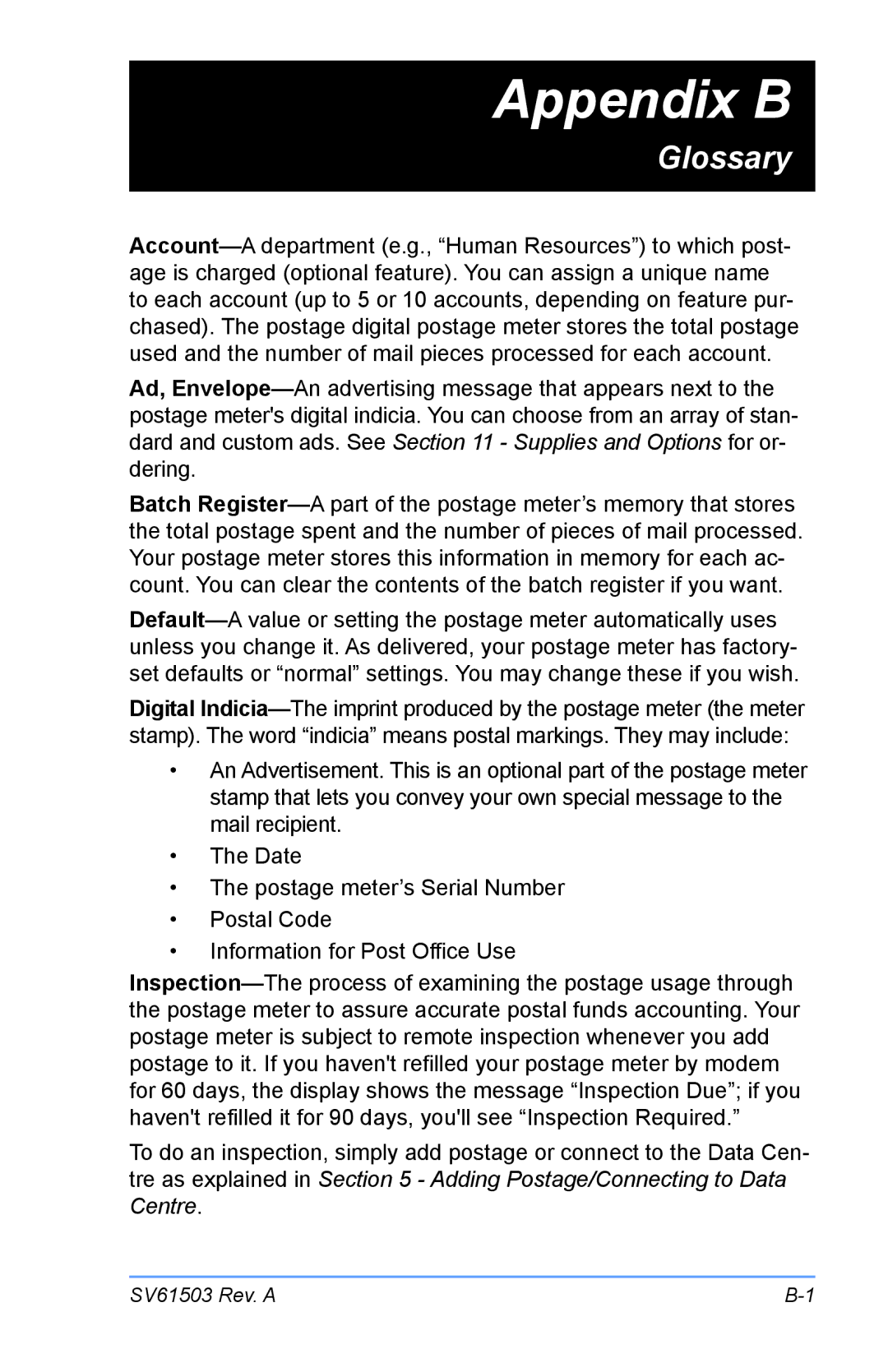Appendix B
Glossary
Account—A department (e.g., “Human Resources”) to which post- age is charged (optional feature). You can assign a unique name to each account (up to 5 or 10 accounts, depending on feature pur- chased). The postage digital postage meter stores the total postage used and the number of mail pieces processed for each account.
Ad, Envelope—An advertising message that appears next to the postage meter's digital indicia. You can choose from an array of stan- dard and custom ads. See Section 11 - Supplies and Options for or- dering.
Batch Register—A part of the postage meter’s memory that stores the total postage spent and the number of pieces of mail processed. Your postage meter stores this information in memory for each ac- count. You can clear the contents of the batch register if you want.
Default—A value or setting the postage meter automatically uses unless you change it. As delivered, your postage meter has factory- set defaults or “normal” settings. You may change these if you wish.
Digital Indicia—The imprint produced by the postage meter (the meter stamp). The word “indicia” means postal markings. They may include:
•An Advertisement. This is an optional part of the postage meter stamp that lets you convey your own special message to the mail recipient.
•The Date
•The postage meter’s Serial Number
•Postal Code
•Information for Post Office Use
Inspection—The process of examining the postage usage through the postage meter to assure accurate postal funds accounting. Your postage meter is subject to remote inspection whenever you add postage to it. If you haven't refilled your postage meter by modem for 60 days, the display shows the message “Inspection Due”; if you haven't refilled it for 90 days, you'll see “Inspection Required.”
To do an inspection, simply add postage or connect to the Data Cen- tre as explained in Section 5 - Adding Postage/Connecting to Data Centre.

